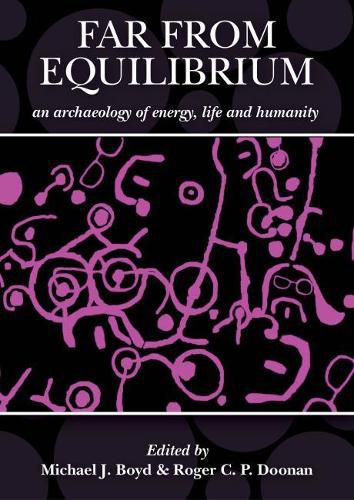Readings Newsletter
Become a Readings Member to make your shopping experience even easier.
Sign in or sign up for free!
You’re not far away from qualifying for FREE standard shipping within Australia
You’ve qualified for FREE standard shipping within Australia
The cart is loading…






Archaeology is in crisis. Spatial turns, material turns and the ontological turn have directed the discipline away from its hard-won battle to
find humanity in the past. Meanwhile, popularised science, camouflaged as archaeology, produces shock headlines built on ancient DNA analyses that reduce humanity’s most intriguing historical problems to ‘just-so stories’. Today archaeology finds itself less able than ever to proclaim its relevance to the modern world. This volume foregrounds the relevance of the scholarship of John C. Barrett to this crisis. Twenty-four writers representing three generations of archaeologists scrutinise the current turmoil in the discipline and highlight the resolutions that may be found through Barrett’s analytical framework. Topics include archaeology and the senses, the continuing problem of the archaeological record, practice, discourse and agency, reorienting archaeological field practice, the question of different expressions of human diversity and material ecologies. Understanding archaeology as both a universal and highly specific discipline, case studies range from the Aegean to Orkney, and encompass Anatolia, Korea, Romania, the United Kingdom and the very nature of the Universe itself. This critical examination of John Barrett’s contribution to archaeology is simultaneously a response to his urgent call to arms to reorient archaeology in the service of humanity. AUTHORS: Michael Boyd is a senior research associate at the McDonald Institute for Archaeological Research at the University of Cambridge. His main research interests lie in the prehistoric Aegean where he has worked in the Peloponnese and Cyclades. He is co-director of the Keros-Naxos Seaways project, and co-editor of the Keros publications series. He has co-written a book with John Barrett on identity in third-millennium Europe, has published a book on Mycenaean funerary practices, and has co-edited two collected volumes on funerary archaeology, and two volumes on Cycladic sculpture. He has worked widely in Greece, Bulgaria and Albania. Roger Doonan is an archaeologist at Archaeological Research Services Limited, Sheffield. His research interests lie in Eurasian prehistory with an emphasis on craft practice as understood through innovative field methods. He has previously worked for English Heritage and held positions at the Universities of Bournemouth and Sheffield.
$9.00 standard shipping within Australia
FREE standard shipping within Australia for orders over $100.00
Express & International shipping calculated at checkout
Archaeology is in crisis. Spatial turns, material turns and the ontological turn have directed the discipline away from its hard-won battle to
find humanity in the past. Meanwhile, popularised science, camouflaged as archaeology, produces shock headlines built on ancient DNA analyses that reduce humanity’s most intriguing historical problems to ‘just-so stories’. Today archaeology finds itself less able than ever to proclaim its relevance to the modern world. This volume foregrounds the relevance of the scholarship of John C. Barrett to this crisis. Twenty-four writers representing three generations of archaeologists scrutinise the current turmoil in the discipline and highlight the resolutions that may be found through Barrett’s analytical framework. Topics include archaeology and the senses, the continuing problem of the archaeological record, practice, discourse and agency, reorienting archaeological field practice, the question of different expressions of human diversity and material ecologies. Understanding archaeology as both a universal and highly specific discipline, case studies range from the Aegean to Orkney, and encompass Anatolia, Korea, Romania, the United Kingdom and the very nature of the Universe itself. This critical examination of John Barrett’s contribution to archaeology is simultaneously a response to his urgent call to arms to reorient archaeology in the service of humanity. AUTHORS: Michael Boyd is a senior research associate at the McDonald Institute for Archaeological Research at the University of Cambridge. His main research interests lie in the prehistoric Aegean where he has worked in the Peloponnese and Cyclades. He is co-director of the Keros-Naxos Seaways project, and co-editor of the Keros publications series. He has co-written a book with John Barrett on identity in third-millennium Europe, has published a book on Mycenaean funerary practices, and has co-edited two collected volumes on funerary archaeology, and two volumes on Cycladic sculpture. He has worked widely in Greece, Bulgaria and Albania. Roger Doonan is an archaeologist at Archaeological Research Services Limited, Sheffield. His research interests lie in Eurasian prehistory with an emphasis on craft practice as understood through innovative field methods. He has previously worked for English Heritage and held positions at the Universities of Bournemouth and Sheffield.